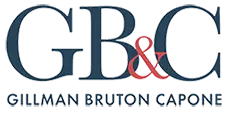If you are homeowners who are attempting to prevent foreclosure by obtaining a loan modification, you are almost certainly dealing with mortgage servicer. Virtually every client who had retained us after attempting to work out a loan modification with a mortgage servicer has had the same experience. They have been required by the servicer to submit the same paperwork over and over again and have had to deal with an ever-changing cast of characters. “ They can never find the application we sent them, and you never talk to the same person you talked to the last time”. Unfortunately, the experience of our clients is perfectly representative.
“A growing number of homeowners trying to avert foreclosure are confronting problems on a new front as the mortgage industry undergoes a seismic shift. Shoddy paperwork, erroneous fees and wrongful evictions — the same abuses that dogged the nation’s largest banks and led to a $26 billion settlement with Federal authorities in 2012 — are now cropping up among the specialty firms that collect mortgage payments according to dozens of foreclosure lawsuits and interviews with borrowers, Federal and State regulators and housing lawyers. These companies are known as servicers, but they do far more than transfer payments from borrowers to lenders. They have great power in deciding whether homeowners can win a mortgage modification or must hand over their home in a foreclosure.” New York Times February 18, 2014.
Once upon a time long ago, homeowners made their mortgage payments to the bank that had lent them the money to buy their homes. This uncomplicated way of servicing a loan seems attractive because a home owner knew to whom he owed payment and to whom complaints should be directed if the homeowner believed that the bank’s records were inaccurate.
The banks which held the loans they made were careful about the money they lent to buy a home, ‘purchase money”, and wanted to work things out – if possible – when or if a homeowner fell behind on payments. The problem was that this old system didn’t do a very good job of making mortgage money available.
A brilliant innovation made purchase money much easier to obtain by securitizing home loans. If securitization sounds complicated to the point of being incomprehensible, it isn’t – loans are securitized by creating a bundle of loans and selling a bond secured by the loans to an investor. Basically, this process is no different than someone buying a United States Savings Bond. Both bonds pay interest and dictate how the price paid for the bond will be repaid. The difference between a United States Saving Bond and a bond secured by a bundle of mortgage loans is that repayment of the savings bond is guaranteed by the full faith and credit of the United States and repayment of the bond sold to investors is secured by the bundle of mortgage loans.
Mortgage servicer is a clunky term that describes an entity that is responsible for collecting a homeowner’s mortgage payments which in most cases includes the property taxes and insurance on the home. The servicer then remits the balance to the entity that owns the loan on the home after deducting the fee it charges for its services.
Example: ABC Bank creates a bundle of 100 home loans and then sells an investor a bond which is secured by the bundle of mortgages. The bond pays interest to the investor – just like a United States Savings Bond –
and, at some point, the money paid by the investor is repaid. In the case of a 30 year mortgage, the investor would receive payments each month which would include a part of the amount of the loan and interest on the loan.
The securitization of home loans worked extremely well for a long time and homeownership in the United States increased rapidly. Very few loans went bad and over a long period of time the price of homes rose along with the price of everything else. But then, as is always the case, some people got greedy and some got crazy.
The greedy people started making loans to purchase homes without paying attention to or even caring about whether the people to whom they made could repay them because they were paid upfront for making the loans. The loans were then bundled and sold and the risk of the loans not being paid transferred to the investors who bought them. When risk and reward are separated, problems are sure to follow.
Then crazy people – or perhaps more accurately those suffering from temporary insanity – began to believe that the price of homes never went down; they didn’t worry about the ability of those making the loans to repay them because the homes would always be worth more than the loans on them.
In 2008, the conduct of the greedy people and the crazy people caused the greatest economic disaster since the stock market crash of 1929, which was caused by the belief of people at that time that the price of stocks could never go down. The binge of buying and lending caused great harm to many and the economy is still suffering from the hangover.
However, as is always the case, disasters benefit some – for instance vultures. The crash of housing prices has benefited mortgage servicers like Nationstar and Ocwen Financial because it created lots of business for them. The best part for the servicer is that even if the homeowner and the lender lose they win. This is because they don’t own the mortgages they are servicing. The servicer gets paid no matter what – in fact, the more complicated, difficult, and protracted the servicing of a mortgage, the more they get paid.
Homeowners who are experiencing difficulty with a mortgage servicer should submit their complaint to Federal Consumer Financial Protection Bureau http://www.consumerfinance.gov/complaint/#mortgage
Those homeowners who are threatened with foreclosure and have had difficulty with their mortgage servicer should seek the advice of an attorney about the laws that protect them and the legal remedies available to them.


